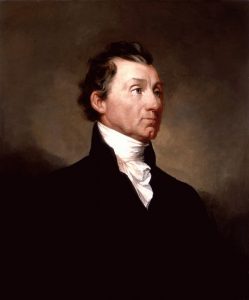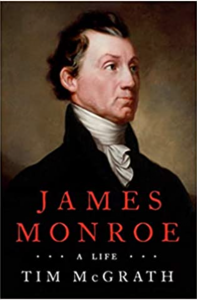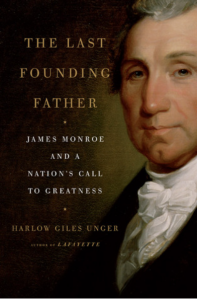James Monroe
James Monroe Biography
Overview
 James Monroe was an American statesman, lawyer, diplomat and Founding Father who served as the fifth president of the United States from 1817 to 1825. A member of the Democratic-Republican Party, Monroe was the last president of the Virginia dynasty; his presidency coincided with the Era of Good Feelings. He is perhaps best known for issuing the Monroe Doctrine, a policy of opposing European colonialism in the Americas. He also served as the governor of Virginia, a member of the United States Senate, the U.S. ambassador to France and Britain, the seventh Secretary of State, and the eighth Secretary of War.[1]
James Monroe was an American statesman, lawyer, diplomat and Founding Father who served as the fifth president of the United States from 1817 to 1825. A member of the Democratic-Republican Party, Monroe was the last president of the Virginia dynasty; his presidency coincided with the Era of Good Feelings. He is perhaps best known for issuing the Monroe Doctrine, a policy of opposing European colonialism in the Americas. He also served as the governor of Virginia, a member of the United States Senate, the U.S. ambassador to France and Britain, the seventh Secretary of State, and the eighth Secretary of War.[1]
Quick Facts:
| Full Name | James Monroe |
| Birth Date | April 28, 1758 |
| Birth Place | Westmoreland County, Virginia |
| Death Date | July 4, 1831 |
| Career | Lawyer |
| Spouse | February 16, 1786, to Elizabeth Kortright (1768–1830) |
| Children | Eliza Kortright (1786–1835), James Spence (1799–1800), Maria Hester (1803–1850) |
| President No. | 5 |
| Presidency Begin | March 4, 1817 |
| Presidency End | March 4, 1825 |
| Vice President(s) | Daniel D. Tompkins (1817-1825) |
James Monroe was born April 28, 1758, in his parents’ house in a wooded area of Westmoreland County, Virginia. His father Spence Monroe (1727–1774) was a moderately prosperous planter and slave owner who also practiced carpentry. His mother Elizabeth Jones (1730–1772) married Spence Monroe in 1752 and they had five children: Elizabeth, James, Spence, Andrew, and Joseph Jones.[20]
Resources
Web Sites:
Books:
REFERENCES
- **Presidential Flag Graphic source: Zscout370 at English Wikipedia, CC BY-SA 3.0 <http://creativecommons.org/licenses/by-sa/3.0/>, via Wikimedia Commons
- (1) https://en.wikipedia.org/wiki/James_Monroe
- (20) Unger, Harlow G. (2009). The Last Founding Father: James Monroe and a Nation’s Call to Greatness. Da Capo Press., pp. 9-10



